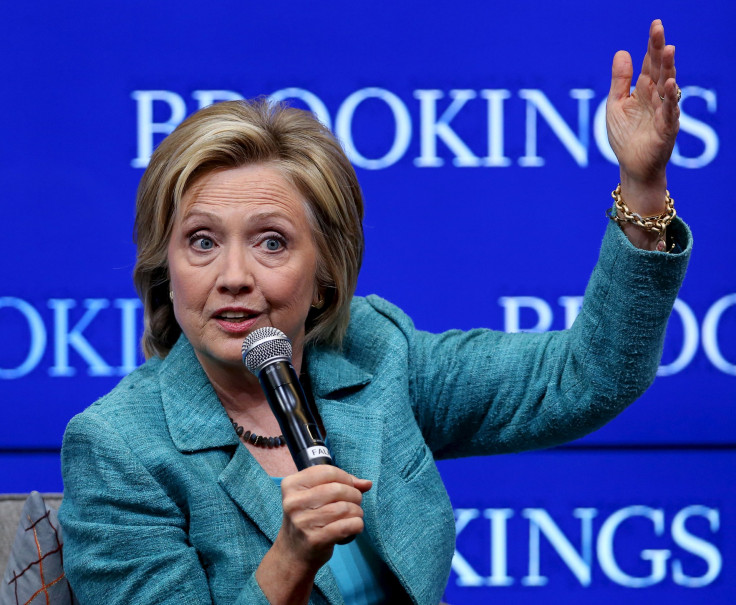Hillary Clinton Endorses Wage Act, Union-Backed Labor Law Reform Bill

As she seeks to bolster union support for her White House bid, former Secretary of State Hillary Clinton has endorsed a landmark piece of labor law reform. On Tuesday, Clinton tweeted her support for the Workplace Action for a Growing Economy Act -- or so-called Wage Act -- a union-backed bill introduced in Congress last week.
We need labor law reform. The #WAGEAct would protect workers' rights, now Congress should pass it. -H
— Hillary Clinton (@HillaryClinton) September 22, 2015With Clinton’s support, both front-runners for the Democratic nomination now endorse the bill, which includes measures designed to strengthen legal protections for workers who speak out on the job. Sen. Bernie Sanders, I-Vt., who leads Clinton in New Hampshire and Iowa but trails her nationally, is a co-sponsor of the legislation. The Wage Act also has the key blessing of the AFL-CIO, the nation’s largest labor federation. President Richard Trumka has called it a “critical first step in addressing both a changing economy and labor laws that have failed to keep up with a changing workplace.”
The bill effectively makes labor organizing a civil right. It would allow workers who get fired for union organizing or speaking out about workplace issues to seek damages in federal courts -- much like employees who suffer racial or sex discrimination can right now. It would also boost civil penalties for companies who break labor laws and make it easier for workers who are illegally fired to be reinstated.
Moshe Marvit, a Pittsburgh-based lawyer who co-authored a book that provided inspiration for the bill, called Clinton’s endorsement “extraordinarily important. It shows whoever wins the Democratic nomination will hold this out” as the main tool for enacting labor law reform.
Labor law reform, in general, has long been a priority of the union movement. On the 2008 campaign trail, candidates Obama and Clinton praised the union-backed Employee Free Choice Act, which would have made it easier for workers to hold union elections. However, efforts to pass it in Congress floundered after Democrats proved unable to overcome Republican opposition.
The move from the former secretary comes as she looks to capture key endorsements from trade unions -- a historically significant and politically powerful part of the Democratic coalition. The AFL-CIO rarely endorses candidates during the competitive primary season and is expected to line up behind whoever wins the Democratic nomination. Sanders supporters are also pressing hard for the federation to lay off until the dust from the primaries settles.
In the meantime, candidates are trying to rein in support from individual unions: Clinton, the clear front-runner, has won backing from the American Federation of Teachers, the United Brotherhood of Carpenters and Joiners of America, the International Association of Machinists and Aerospace Workers as well as three smaller trade unions; Sanders so far has the endorsement of the National Nurses United. The powerful Service Employees International Union and public-sector American Federation of State, County and Municipal Employees are both said to be leaning toward Clinton.
© Copyright IBTimes 2024. All rights reserved.






















